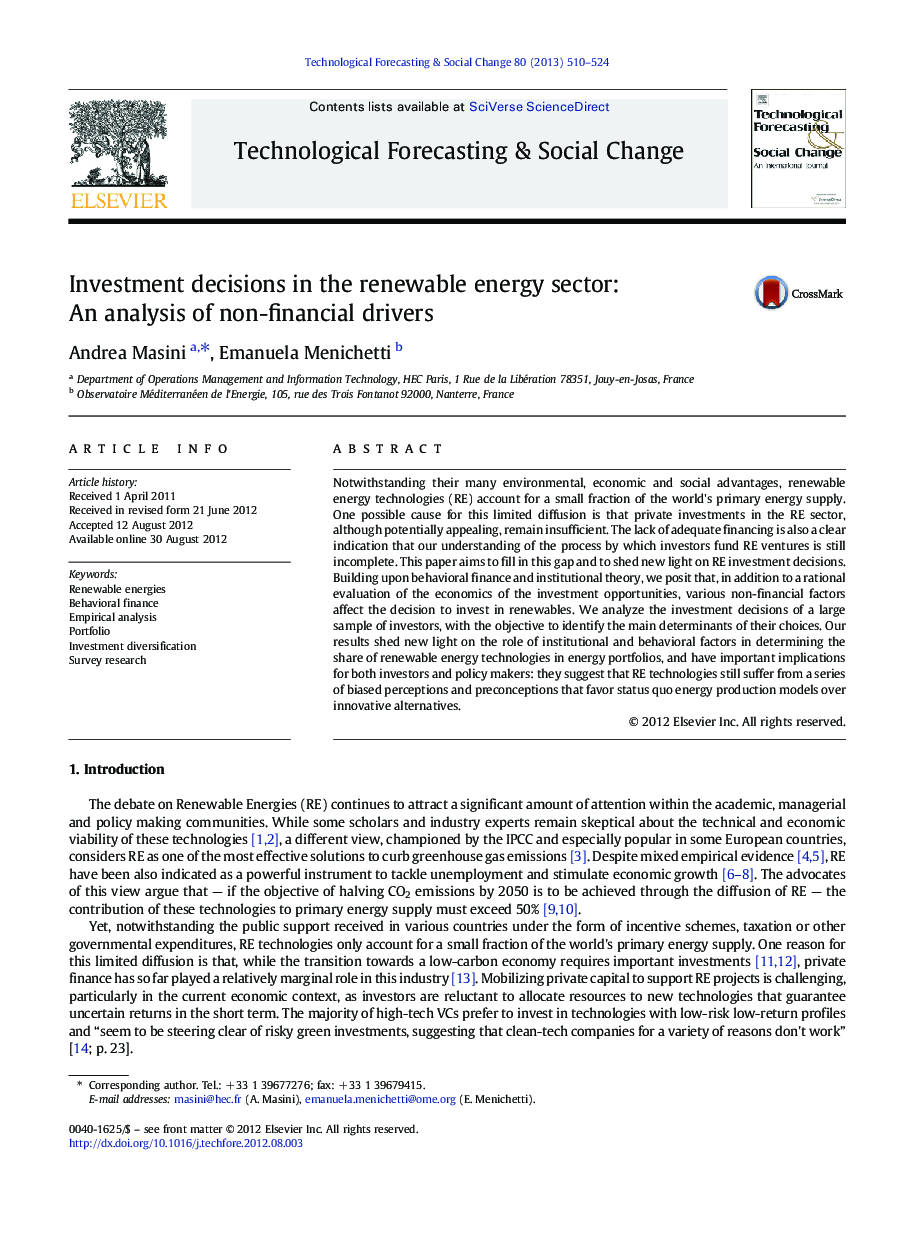| Article ID | Journal | Published Year | Pages | File Type |
|---|---|---|---|---|
| 896643 | Technological Forecasting and Social Change | 2013 | 15 Pages |
Notwithstanding their many environmental, economic and social advantages, renewable energy technologies (RE) account for a small fraction of the world's primary energy supply. One possible cause for this limited diffusion is that private investments in the RE sector, although potentially appealing, remain insufficient. The lack of adequate financing is also a clear indication that our understanding of the process by which investors fund RE ventures is still incomplete. This paper aims to fill in this gap and to shed new light on RE investment decisions. Building upon behavioral finance and institutional theory, we posit that, in addition to a rational evaluation of the economics of the investment opportunities, various non-financial factors affect the decision to invest in renewables. We analyze the investment decisions of a large sample of investors, with the objective to identify the main determinants of their choices. Our results shed new light on the role of institutional and behavioral factors in determining the share of renewable energy technologies in energy portfolios, and have important implications for both investors and policy makers: they suggest that RE technologies still suffer from a series of biased perceptions and preconceptions that favor status quo energy production models over innovative alternatives.
► We examine the impact of non financial factors on renewable energy investments. ► Knowledge and confidence in technological adequacy positively affect RE investments. ► Confidence in policy measures influences investments in PV and hydro only. ► Institutional pressure negatively affects RE investments. ► Ceteris paribus, experienced investors are more likely to invest in renewables.
